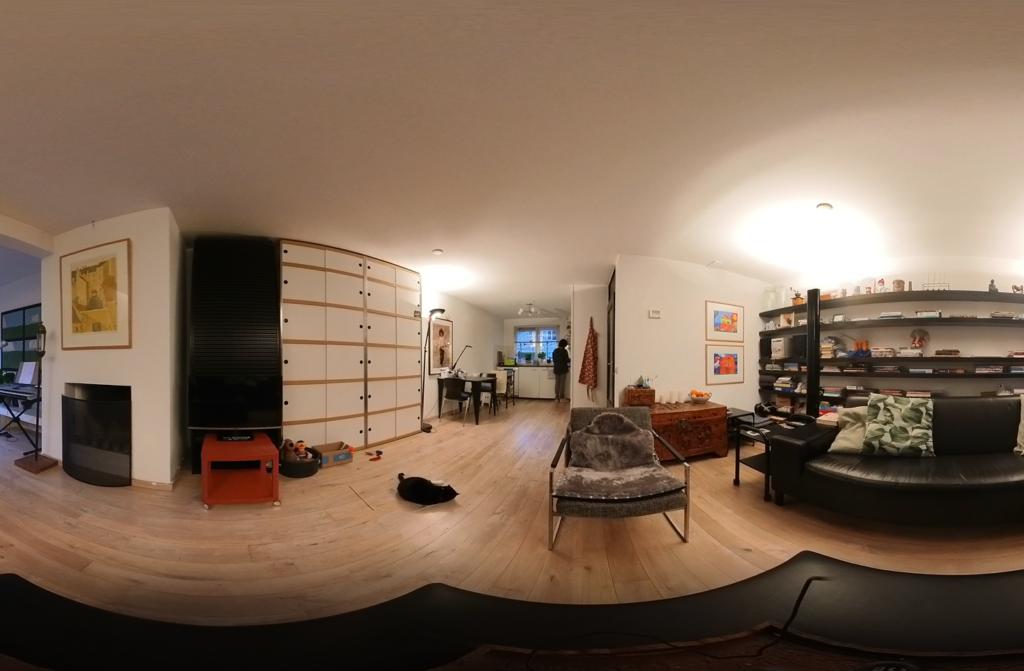Cat-human interactions
In this research project we analyse interactions between domestic cats and the humans they share a household with. How do cats make clear that they want something? And how do cats and their humans establish fixed routines?

The overall research question of this project is: how do cats and humans co-create meaning in everyday interactions? It is a qualitative study about cats and humans engaging in naturally occurring activities such as petting, playing or feeding. We will study how particular sounds, bodily actions and senses are used to produce and interpret social actions. As such, in this project we will investigate how cats and humans solicit actions from each other, such as providing food or coming over to sit on the couch.
How are we going to realise this?
We are going to record naturally occurring interactions between cats and humans in their home environment. Their embodied practices of meaning-making will then be described and studied using conversation analysis (CA). This is a highly specialized tool for the micro-analysis of videos.
In this multidisciplinary research project we collaborate with experts from different fields, e.g. veterinary medicine, behavioral biology, media science, anthropology, organization science and of course linguistics and sociolinguistics. We approach the same research question from different angles in order to get familiar with each other’s perspectives and feed each other’s expertise.
Why is this important (and for whom)?
It is important that we do not reduce cat-human interactions to 1) vocalisations and 2) discreet (physical) signals, like we have seen in previous research projects. It is important to take a multimodal and multisensorial perspective and look at situated interactions in detail. This will provide a broader view on meaning making in language / interaction. Thus, we do not only focus on humans and not only on speech.
This project also aims to address the question as to why linguists draw an a-priori basic distinction, claimed to be universal, between humans and other animals. This project will make a plea for an inclusive linguistics, in which research of non-human animal languages, communication and our interactions with them may become common practice.
This project will provide access to a new database on cat-human interactions. This new database will be a first step towards a database including communication between humans and animals, making the Meertens databases more inclusive. At the end of the project, the cat-human interaction database can be reused by ethologists, medicine veterinaries, multi-species ethnographers, animal anthropologists and linguists as a crucial piece of information for understanding healthy cat vocalisations and behaviour when addressing ‘their’ human(s).
Results
- Cornips, L., van Koppen, M., Leufkens, S., Melum Eide, K., & van Zijverden, R. (2023). A linguistic-pragmatic analysis of cat-induced deixis in cat-human interactions. Journal of Pragmatics, 217, 52–68. https://doi.org/10.1016/j.pragma.2023.09.002
- Rasenberg, M., Amha, A., Coler, M., van Koppen, M., van Miltenburg, E., de Rijk, L., Stommel, W., & Dingemanse, M. (in press). Reimagining Language: Towards a Better Understanding of Language by Including Our Interactions with Non-Humans. Linguistics of the Netherlands. https://doi.org/10.1075/avt.00095.ras
Valorisation
- The main aim of this project is to promote a better understanding of the ways in which humans and animals can understand each other, despite the lack of a shared spoken language.
- Secondly, the project is expected to result in media coverage and public lectures, hence informing for example pet owners, consumers, professionals working with animals and even policy makers.
- Furthermore, we are collaborating with a non-profit organisation for the welfare of pets (Sophia-Vereeniging). This organisation takes concrete steps to improve animal welfare, for example by law amendments and public campaigns. Collaborating with this organisation, we can make a direct social impact.
Runtime: April 2023 – June 2024
Partners: Saskia Arndt (Utrecht University), Mark Dingemanse (Radboud University), Sterre Leufkens (Utrecht University), Kristin Melum Eide (Norwegian University of Science and Technology), Kees Van Oers (NIOO-KNAW and Wageningen University & Research), Maarten Reesink (University of Amsterdam and Centrum voor DierMens Studies), Lynn de Rijk (Radboud University), Harry Wels (Vrije Universiteit Amsterdam and African Studies Centre Leiden), Ronja van Zijverden, Sophia Vereeniging





